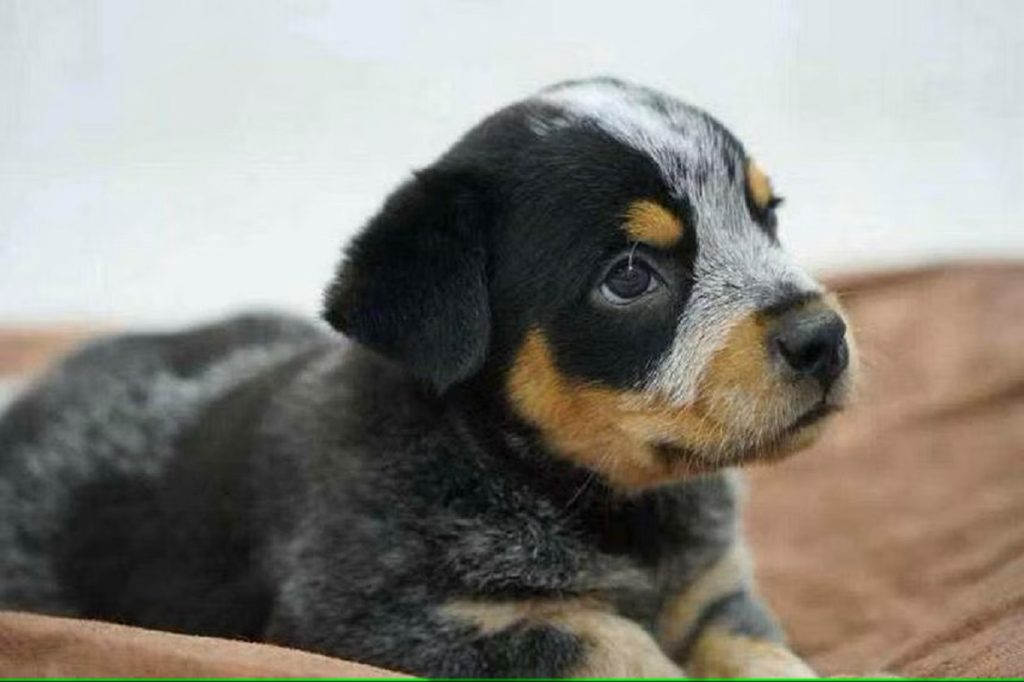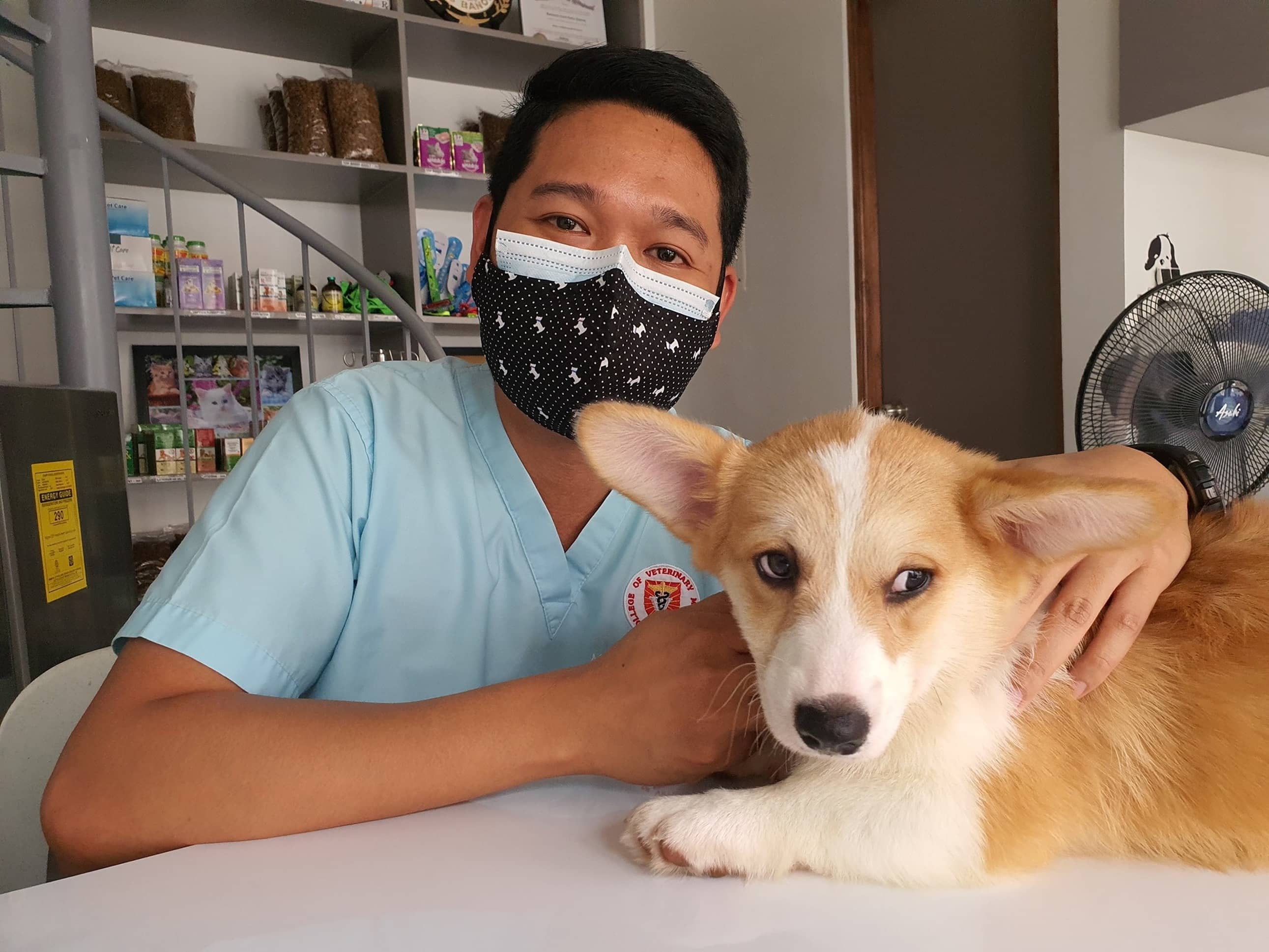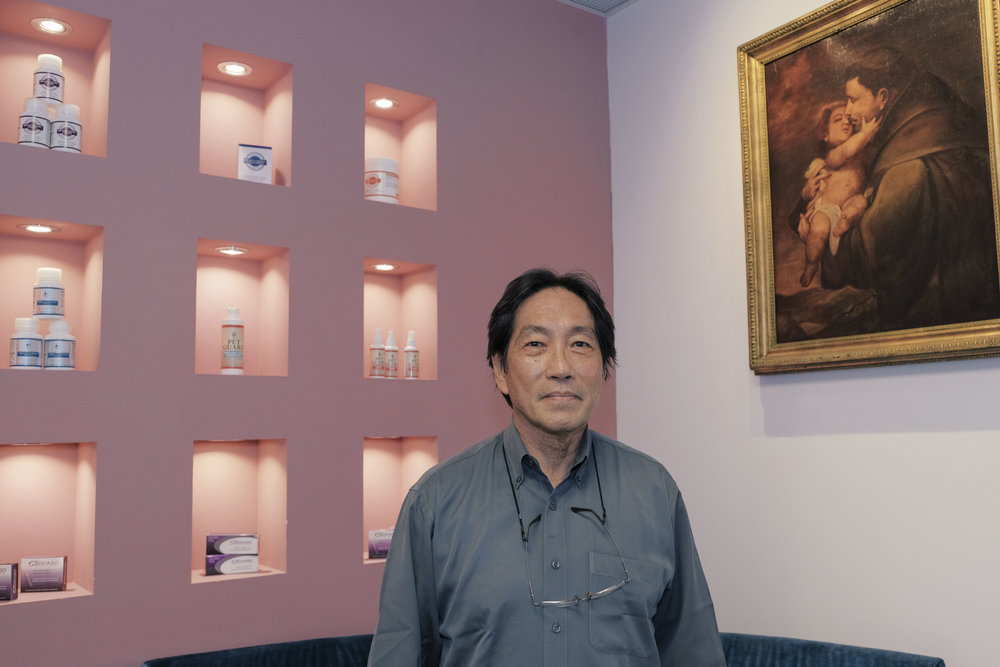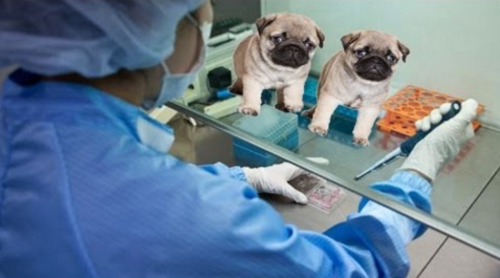Lifestyles
Vet Forks Out $70,000 to Clone His Beloved Dog Khan ” I just Wanted to See Him Again”
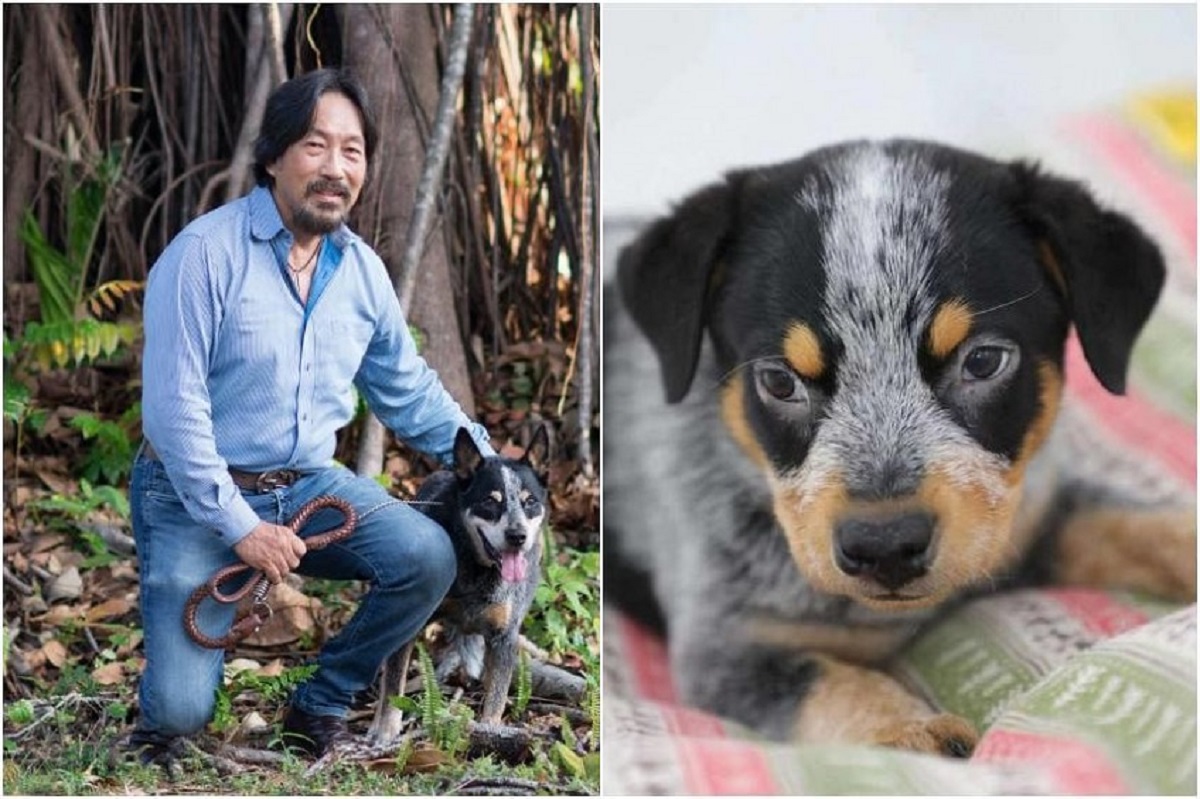
Singapore:– Veterinarian Dr. Jean-Paul Ly “felt a bit lost” when his 17-year-old Australian cattle dog, Khan, died in 2021. “I felt he died too soon; I needed a little more time with him,” the 73-year-old remarked.
Khan was successfully cloned in China around a year ago, and he arrived in Singapore at the beginning of June. The puppy was quarantined for a month before being given to Dr. Ly, who cried when he met his dog, also named Khan.
He acknowledged to being nervous at first, but it “all melted away within five minutes of meeting him.”
“He greeted me like he’d never left,” Dr. Ly remarked. “It was an emotional explosion between him and me.” Of course, I cried since I was seeing my old Khan.”
While the cloned dog lacks the original Khan’s black patches on its back, Dr. Ly claims its face is “exactly the same.”
They also have similar characteristics, with both dogs being “a little stubborn (and) very confident,” he noted. Dr. Ly described his initial encounter with the new dog as “uncanny.”
“What was strange was that he obeyed every command I gave him.” “I’d never seen him before, and I’d never trained him,” he recounted.
Although it cost $50,000 to clone the dog and another $20,000 for its stay in China, flights, and other extraneous fees, Dr. Ly stated he would have had Khan duplicated anyway. “No one could have talked me out of it,” he went on.
“The dog provides me with more companionship, solace, and affection than all of my family members combined,” he added, adding that he had three children “with their own lives.”
Dr. Ly described the benefits of having a dog by saying, “When a dog is faithful, he is faithful until death.” If there is a conflict, he will be the first to die for you.
“If a bear was approaching or a wild animal was about to attack me, he would be the first to defend me.” The rest of my family would most likely flee.”
Aside from his profound affection for the “very special” canine, remorse played a role in his choice to clone Khan after he accidentally ran over the dog with his automobile four years ago. The old Khan lived, but he was badly hurt.
After the accident, Dr. Ly, a vet with 48 years of experience, treated him back to health, but “he wasn’t himself again.” “So I quickly decided to harvest his skin cells.”
Under local anaesthetic, he obtained four skin samples from Khan. The samples were flown to Sinogene, a pet-cloning firm in Beijing, and cryogenically frozen.
Dr. Ly instructed Sinogene to “resurrect” Khan’s cells and clone him after Khan died more than two years ago. The initial attempt to clone Khan, according to Sinogene CEO Mi Jidong, failed.
The embryo containing Khan’s genes developed in a surrogate female dog for roughly two months, which is the dog’s gestation period, however the cloned puppy died four days after birth for unclear reasons.
“We began the second cloning attempt, which was fortunately successful.” Mr Mi stated that the cloned Khan has been healthy from birth.
In the same way that IVF
Cloning is analogous to in-vitro fertilisation (IVF), a fertility procedure, according to Dr. Ly.
In the case of IVF, instead of inserting a sperm into an egg, the egg’s nucleus is removed and the nucleus of the pet’s cells, taken from a skin sample, is inserted into the egg to clone the pet.
The now-fertilized egg, which contains the DNA of the pet, is then returned into the egg donor’s reproductive system. This leads to a pregnancy that she will carry to term.
After a series of immunisations, including one for rabies, and quarantine in China and Singapore, the cloned Khan was about a year old when he moved in with Dr Ly.
Dr. Ly also expressed concern about “DNA problems” because the original Khan was quite old when he obtained skin samples from it.
However, X-rays and blood testing on the clone revealed that he was “super normal,” much to Dr Ly’s relief. Nonetheless, Dr. Ly stated that he would not clone Khan again. “There was a certain amount of selfishness on my part,” he admitted. “I really just wanted to see him again.”
The Animal and Veterinary Service (AVS) “recognises the strength of the human-animal bond, particularly when it comes to one’s pets and companion animals,” according to Dr Chang Siow Foong, group director of professional and scientific services at AVS.
While he stated that “there are no regulations against cloning,” he also stated that “owners should be aware of the potential risks associated with cloning because these will affect the welfare of their pet.”
All cats and dogs imported into Singapore must follow AVS import requirements, with no exceptions for cloned companion animals.
In response to questions, Ms Aarthi Sankar, executive director of the Society for the Prevention of Cruelty to Animals (SPCA), stated that pet cloning creates ethical concerns and that the SPCA opposes the practise.
She claims that the process of cloning pets frequently entails multiple failed efforts, which can result in undue suffering for the animals involved. “Procedures like harvesting egg cells from dogs in heat and performing surgery on them for cloning purposes raise serious ethical concerns about animal welfare.”
“Another major concern is the high mortality rate of cloned pets, especially in the early stages,” she added. “Studies have shown that a significant portion of cloned animals do not survive beyond 60 days, and they are also more susceptible to diseases,” according to the article.
Ms Sankar advised people to choose adoption over cloning. When challenged about the ethical problems regarding cloning, Dr. Ly downplayed them, claiming that there is a lot of misunderstanding about the process.
According to the founder of Animal Wellness Centre, an integrated veterinary treatment centre, the animals are not harmed during the procedure.
“Under local anaesthesia, we only take a pinch the size of a green pea.” There is no discomfort. There is only one stitch. Dr. Ly described the procedure of acquiring skin samples as “not tying down the dog,” adding that implanting microchips in pets with “a huge needle” is considerably more traumatic.
He claims that the only risk of extracting eggs from a female dog is the anaesthetics. “It’s a small incision, and you can often use an endoscope to suck out the eggs.” “You only do that,” he added.
Mr Mi stated that cloned animals had the same degree of health, lifespan, and reproductive capabilities as naturally produced animals due to advancements in cloning technology. He said that the world’s first cloned dog, for example, lived for up to ten years, which is comparable to the lifespan of non-cloned canines.
“Many of the animals cloned by our team have become parents, demonstrating their normal reproductive capabilities.” Dr Ly stated that he worked as an SPCA veterinarian in Australia and Singapore for 15 years.
“I don’t engage in any unethical behaviour.” I’ve never clipped tails or ears and have never cut tails. “I don’t debark,” he clarified.
When given the option, he claims that the majority of pet owners who visit his centre choose to buy or adopt a new pet rather than clone their pet.
“It’s a decision that they make because it’s their journey,” he explained. “I don’t tell people what to do, especially when it comes to important matters of the heart.”
Dog Cloning in China
China has been actively involved in dog cloning research and technology. In fact, one of the most notable instances of dog cloning comes from China. In 2005, a company called Sinogene was established in Beijing, China, with the goal of providing commercial pet cloning services. Sinogene gained attention for successfully cloning a dog named “Little Long Long” in 2017.
“Little Long Long” was a genetically identical clone of a dog named “Apple,” which had gained fame as a rescue dog credited with saving lives during the Wenchuan earthquake in 2008. Sinogene’s success in cloning “Little Long Long” marked a significant advancement in dog cloning technology in China.
Since then, Sinogene and other organizations in China have continued their efforts in pet cloning, including dogs. These companies offer services to clone dogs and other pets, though the high cost and ethical concerns have been points of discussion.
It’s important to note that while China has been active in the field of dog cloning, it’s not the only country involved in such research. Cloning technology has been explored in various parts of the world, and the ethical and scientific considerations surrounding it continue to be debated.

